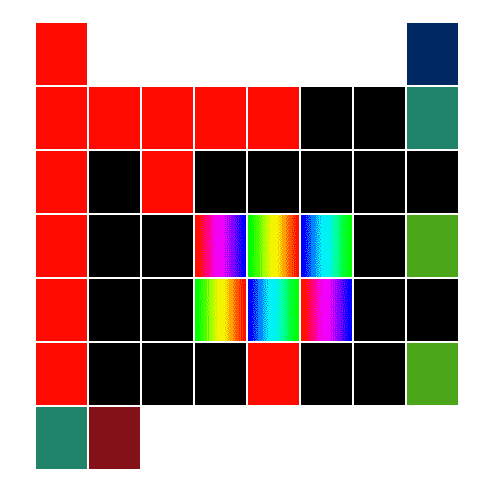| Technoculture⎪Grid⎪Corporate Landscape⎪Cyberspace⎪Virtual Horizons⎪Hyperdimension⎪Home Page⎪Hu⎪En |
www(dot)hu
|
| The beginnings of the Internet in Hungary |
 |
|
| |
Miklós Peternák |
|
Introduction |
|
| Hungarian Content, 1997, publication >>> (Only in Hungarian) |
|
| |
|
| In September 1997, the C³ Centre for Culture and Communication of the Soros Foundation asked a few people who were up to the task to spend a month browsing the Hungarian pages of the World Wide Web and summarize their experiences in the form of a study and a collection of titles. This book contains material resulting from this quest. |
|
| |
|
| Bruce Sterling, formerly a renowned science fiction writer and now perhaps the most ambitious and active researcher of dead media, publishes in his own networking and research mailing list the 'Note 26.0' of 5 October 1997, a message from David Blatner (a representative of afterlife). This explains how surprised the author of the message was when his friend asked him to run his website after his death. Thinking about this situation led to the creation of an international non-profit organisation. |
|
| |
|
| We might ask what remains of the rapidly changing web culture for future historians, sociologists and other archivists. We could hear about the disappearance of d-x from the syndicate list, and a few days later, we were told that a young hacker had rescued the material. In fact, the nature of network communication – which one prominent forum found to be like an "endless conversation" – is somewhat at odds with recording and archiving efforts. |
|
| |
|
| There's no reason to assume that the network's history is traceable – updating is the main ambition – and there is no valid reason to archive previous, boring or unsuccessful pages. But neither is it possible to prohibit the opposite. |
|
| |
|
| A new invention, writing, was needed so that we're able to record speech. Following this logic, what can be the writing of Internet-speech? |
|
| |
|
| Until that is defined, perhaps traditional literacy can be of use, as the following studies suggest. |
|
|
| |
C³ |
| |
C³ Center for Culture & Communication Foundation
H-1146 Budapest, Hermina út 22.
Web: www(dot)c3(dot)hu
E-mail: info(at)c3(dot)hu
|
| |
What is C³? |
|
| |
The aims of the C³: Center for Culture & Communication Foundation are the cultural application and creative employment of new scientific and technological discoveries, the research, development and support of innovative artistic potentials, and the initiation and realisation of art, science, communications, educational and cultural programmes. |
|
| |
|
C³ is an open, not for profit institution, a space for innovative experiments and developments related to communication, culture and open society, its main focus the fostering of meetings and cooperation among spheres of art, science and technology. |
|
| |
|
In accordance with our goals, the C³ Foundation addresses the following objectives: |
|
| |
|
-
To ensure the space and opportunity for open information exchange without special interests or bias, for dialogue related to media culture, and to make the results of these accessible to the wider general public.
|
|
| |
|
-
To support artistic and interdisciplinary projects of a high standard, which may be realised via the aid of in-house resources and infrastructure.
|
|
| |
|
-
To expound, interpret and distribute the positive examples established with the initiatives of large-scale events, exhibitions and conferences, traditional and electronic publications, research reports, bulletins and periodicals, via their publication in various media, as well as specialist documentation, and the maintenance of an archive and media library.
|
|
| |
|
-
To propagate the presence of digital culture with the initiation and operation of educational programmes of various level, as well as the new knowledge required by the functioning of the information society.
|
|
| |
|
-
To continuously develop the content and technical conditions of the direction of the new communications technologies in the sense of open strategy; to endeavour to create new results on the user-level, as well as on the level of basic research.
|
|
| |
|
-
To provide the opportunity for network access and publication of a non-profit character according to the given possibility, for other public institutions and organisations, especially those with similar goals to the C³ Foundation.
|
|
|
|
|
 |
| |
| UP! |
